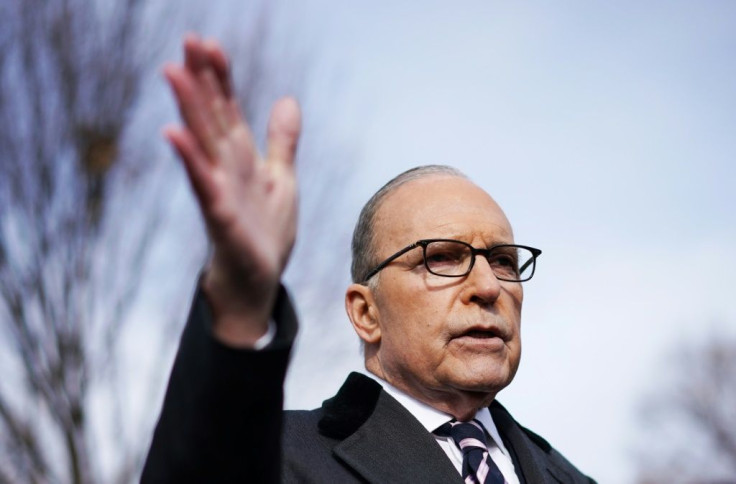Friday's Stock Market Close: US Equities Finish Flat, But S&P, Nasdaq Set Record Highs

KEY POINTS
- The German economy delivered no growth in the fourth quarter of 2019
- White House wants to make it easier for households to invest in stocks
- Retail sales in the U.S. inched up 0.3% in January
U.S. stocks closed Friday as traders parsed through some disappointing economic data and gauged efforts by China to contain its coronavirus epidemic. Nonetheless, the S&P 500 and Nasdaq still set record closing highs.
The Dow Jones Industrial Average slipped 25.57 points to 29,397.74 while the S&P 500 rose 6.14 points to 3,380.08 and the Nasdaq Composite Index gained 19.21 points to 9,731.18.
For the week the Dow gained 1.01%.
Volume on the New York Stock Exchange totaled 2.82 billion shares with 1,502 issues advancing, 256 setting new highs, and 1,426 declining, with 56 setting new lows.
Active movers were led by Genprex Inc. (GNPX), NIO Inc. (NIO) and Roku Inc. (ROKU)
Peter Cardillo, chief market economist at Spartan Capital Securities, said “nobody wants to step up and buy heading into a long weekend.”
The White House is considering ways to encourage U.S. households to invest in the stock market. Larry Kudlow, director of the National Economic Council, told CNBC many scenarios were being discussed, including the creation of universal savings accounts, which would combine retirement, education and health care savings into one entity.
China’s National Health Commission reported more than 5,090 new confirmed cases of the coronavirus. Almost 1,400 people on mainland China have died from the virus.
The German economy posted zero growth in the fourth quarter of 2019.
Retail sales in the U.S. climbed by 0.3% in January, matching most forecasts.
The economic data suggested that “consumer spending is still struggling for momentum,” said Andrew Hunter, senior U.S. economist at Capital Economics. “That may also have been affected by the unseasonable weather, but there were also declines in electronics and health and personal care, while online sales continued their relatively subdued run.”
The import price index came in flat in January. Excluding fuel, prices of imported goods climbed 0.2%, the government said Friday.
U.S. industrial production slipped by 0.3% in January, the fourth such decline in the past five months, the Federal Reserve said Friday. Capacity utilization dropped to 76.8% in January, the lowest rate since September 2017.
The University of Michigan’s consumer sentiment index came in at 100.9 for February, unchanged from January.
Business inventories in the U.S. inched up 0.1% in December after a 0.2% decline in the prior month, the Commerce Department said on Friday.
Cleveland Federal Reserve Bank President Loretta Mester said Friday the central bank is seeking to partner with the private sector to develop a faster payments system.
“The emergence and widespread adoption of new technologies have shaped the public’s expectations for faster, more efficient, secure, and broadly accessible payment services,” Mester said.
“We’re looking now at a very modest positive quarter for the fourth quarter,” said Jon Adams, investment strategist at BMO Global Asset Management. “If we do see earnings growth pick up here, which we think it will throughout 2020, that will bode well for U.S. equities.”
Overnight in Asia, markets finished mixed. China’s Shanghai Composite rose 0.38%, while Hong Kong’s Hang Seng gained 0.31%, and Japan’s Nikkei-225 slipped 0.59%.
In Europe markets finished lower, as Britain’s FTSE-100 dropped 0.58%, France’s CAC-40 fell 0.39% and Germany’s DAX slipped 0.01%.
Crude oil futures gained 1.28% at $52.08 per barrel and Brent crude gained 0.05% at $57.35. Gold futures rose 0.43%.
The euro slipped 0.05% at $1.0837 while the pound sterling gained 0.04% at 1.3047.
The yield on the 10-year Treasury dropped 1.86% to 1.587% while yield on the 30-year Treasury fell 1.35% to 2.043%.
© Copyright IBTimes 2024. All rights reserved.




















